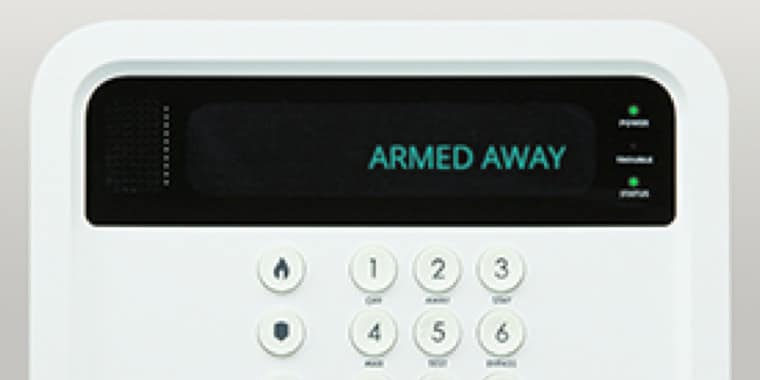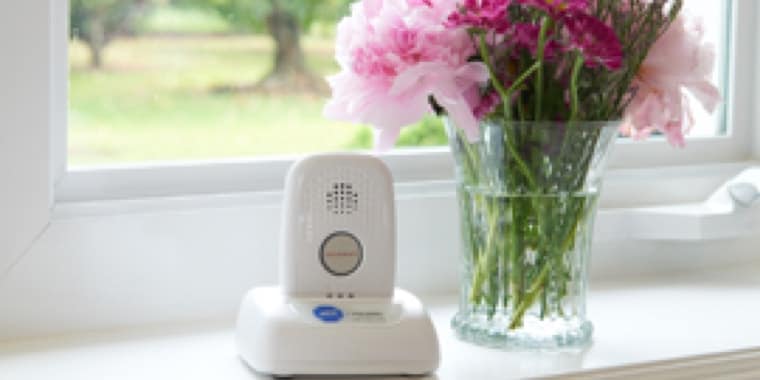6 common Craigslist scams and how to avoid them
Craigslist can be a great place to find discounted merchandise, whether you’re moving to a new home or want a new electronics. Many people fall pretty to internet scams every year, which is why it’s a good idea to know about common Craigslist scams you could potentially run into while buying or selling on the site.
Here are eight common Craigslist scams and some tips to avoid falling for them.
1. Email or texting phishing scams.
You may receive an email or text from a spoofed account that looks like it's coming from Craigslist but is from a scammer. These messages may have a link to an outside source that encourages you to click. Once you do, it'll ask you to log in, request a credit card payment or even verify your identity. But when you click on that link, it installs spyware on your computer or phone.
Usually, the con artist is scamming several people at once in the hopes that a few of them will click on the fraudulent link so they can steal your identity or take your information hostage through spyware.
Don’t
- Use your real email or phone number in your Craigslist ad.
- Respond to these messages.
- Click the link in the message.
- Give out your credit card number, social security number or any other identifying information that could be used to steal your identity.
2. Vague, short responses riddled with spelling errors.
While it's true that many people in the U.S. speak English as a second language, there are instances when numerous grammatical and spelling errors can be a red flag. If someone reaches out to you with an inquiry riddled with spelling and grammar errors, especially when followed by an out-of-town mention, it's likely they' are a scammer.
Craigslist is in over 500 cities in 50 countries. It's a localized website that automatically takes you to the closest city to where you live, so you should only be dealing with local people.
3. A buyer asks you to wire or transfer money, or they ask you to send a cashier’s check or money order.
This is a common Craigslist scam that can also go together with other scams. A buyer (often someone who' is out of town) asks if they can pay you extra for shipping and handling costs, customs costs or some other additional cost.
- The buyer will send you what appears to be a genuine personal check.
- You'll take it to your bank to cash it. Usually, the bank will clear the initial check without any problems.
- The buyer will then ask you to transfer the extra shipping or customs funds to a shipping company for them.
- Eventually, your bank alerts you that the check bounced and you’re on the hook for the funds.
By the end of this experience, you’re out the product you wanted to buy and the seller is nowhere to be found.
Don’t
Continue talking to a potential buyer if they refuse to meet you in person.
Accept a cashier’s check, personal check or certified check.
Receive any extra money from a buyer.
4. Buyer refuses to meet you in person.
Sometimes, con artists can be incredibly convincing with a story about the death of a relative or recent injury that prevents them from meeting you in person.
They could even tell you they were recently deployed to the national guard or military, or that they’re in the middle of a recent move.
If the buyer refuses to meet you, you should consider it a potential scam and move on from trying to purchase the item.
5. The verification code scam.
Sometimes a scammer can flip the script and say that they need you to verify that you’re not a scammer.
A con artist sends you a message asking you to verify your phone number, so they know you're a real person and not a bot. The scammer can then use this code to verify your phone number or email address on an account somewhere else, potentially implicating you, since they're using your information.
Never send a verification code to someone. If they're trying this scam on you, you should immediately report and block the account.
6. Escrow fraud.
This type of Craigslist scam is typically associated with expensive items, like cars or jewelry. An escrow account may seem like a great idea when purchasing an expensive item from Craigslist. When legitimate, escrow accounts work as the middleman between a seller and buyer. The escrow service pays the seller when the buyer has received the order.
When it's used as a scam, a seller says they have their own trusted escrow company that they want to go through. The company may even have a website. However, this is often the seller posing as an escrow service.
- Be wary if a seller insists on using a specific escrow service, especially if it’s an international service.
- See if other people have complained about the company through a search engine search or websites like the Better Business Bureau.
- Verify that the company is properly licensed with a call to the Department of Financial Protection and Innovation at 1-866-275- 2677.
- Research the escrow website for grammatical errors, broken links and a specific office address. If all they list is an email address and there's no way to speak to an actual person, it's a scam.
- Call the number provided and send an email to the email on the company's website. If you only reach a robot, it's a scam. If your email bounces back as undeliverable, it's a scam.
- If the website insists that you sign up for an account or use a money transfer to Western Union, it’s a scam.
Resources for reporting Craigslist frauds
If you believe that you’re the victim of an internet crime, there are a few places you should reach out to.
Don’t forget to contact your credit card to dispute your charges, or if you believe that your credit card information was stolen.
- Internet Crime Complaint Center sends your complaint to various state, federal, local or international law enforcement officials.
- The Federal Trade Commission has tips on what you can do if you’re scammed.
- You can report international scams through econsumer.gov.
- Contact Craigslist directly to report scams.
- Report internet fraud through your state's Attorney General. In a search engine, type in your state, internet fraud and "Attorney General" for the best localized results.
An ADT home security system can help you feel safe and secure
When you're buying and selling on Craigslist, it's not always possible to pick up items in a public space. When you're buying and selling at your home, an ADT security system can help give you peace of mind.
ADT’s home security experts are here to help you pick the perfect security solution for your home today.

6 common Craigslist scams and how to avoid them
Craigslist can be a great place to find discounted merchandise, whether you’re moving to a new home or want a new electronics. Many people fall pretty to internet scams every year, which is why it’s a good idea to know about common Craigslist scams you could potentially run into while buying or selling on the site.
Here are eight common Craigslist scams and some tips to avoid falling for them.
1. Email or texting phishing scams.
You may receive an email or text from a spoofed account that looks like it's coming from Craigslist but is from a scammer. These messages may have a link to an outside source that encourages you to click. Once you do, it'll ask you to log in, request a credit card payment or even verify your identity. But when you click on that link, it installs spyware on your computer or phone.
Usually, the con artist is scamming several people at once in the hopes that a few of them will click on the fraudulent link so they can steal your identity or take your information hostage through spyware.
Don’t
- Use your real email or phone number in your Craigslist ad.
- Respond to these messages.
- Click the link in the message.
- Give out your credit card number, social security number or any other identifying information that could be used to steal your identity.
2. Vague, short responses riddled with spelling errors.
While it's true that many people in the U.S. speak English as a second language, there are instances when numerous grammatical and spelling errors can be a red flag. If someone reaches out to you with an inquiry riddled with spelling and grammar errors, especially when followed by an out-of-town mention, it's likely they' are a scammer.
Craigslist is in over 500 cities in 50 countries. It's a localized website that automatically takes you to the closest city to where you live, so you should only be dealing with local people.
3. A buyer asks you to wire or transfer money, or they ask you to send a cashier’s check or money order.
This is a common Craigslist scam that can also go together with other scams. A buyer (often someone who' is out of town) asks if they can pay you extra for shipping and handling costs, customs costs or some other additional cost.
- The buyer will send you what appears to be a genuine personal check.
- You'll take it to your bank to cash it. Usually, the bank will clear the initial check without any problems.
- The buyer will then ask you to transfer the extra shipping or customs funds to a shipping company for them.
- Eventually, your bank alerts you that the check bounced and you’re on the hook for the funds.
By the end of this experience, you’re out the product you wanted to buy and the seller is nowhere to be found.
Don’t
Continue talking to a potential buyer if they refuse to meet you in person.
Accept a cashier’s check, personal check or certified check.
Receive any extra money from a buyer.
4. Buyer refuses to meet you in person.
Sometimes, con artists can be incredibly convincing with a story about the death of a relative or recent injury that prevents them from meeting you in person.
They could even tell you they were recently deployed to the national guard or military, or that they’re in the middle of a recent move.
If the buyer refuses to meet you, you should consider it a potential scam and move on from trying to purchase the item.
5. The verification code scam.
Sometimes a scammer can flip the script and say that they need you to verify that you’re not a scammer.
A con artist sends you a message asking you to verify your phone number, so they know you're a real person and not a bot. The scammer can then use this code to verify your phone number or email address on an account somewhere else, potentially implicating you, since they're using your information.
Never send a verification code to someone. If they're trying this scam on you, you should immediately report and block the account.
6. Escrow fraud.
This type of Craigslist scam is typically associated with expensive items, like cars or jewelry. An escrow account may seem like a great idea when purchasing an expensive item from Craigslist. When legitimate, escrow accounts work as the middleman between a seller and buyer. The escrow service pays the seller when the buyer has received the order.
When it's used as a scam, a seller says they have their own trusted escrow company that they want to go through. The company may even have a website. However, this is often the seller posing as an escrow service.
- Be wary if a seller insists on using a specific escrow service, especially if it’s an international service.
- See if other people have complained about the company through a search engine search or websites like the Better Business Bureau.
- Verify that the company is properly licensed with a call to the Department of Financial Protection and Innovation at 1-866-275- 2677.
- Research the escrow website for grammatical errors, broken links and a specific office address. If all they list is an email address and there's no way to speak to an actual person, it's a scam.
- Call the number provided and send an email to the email on the company's website. If you only reach a robot, it's a scam. If your email bounces back as undeliverable, it's a scam.
- If the website insists that you sign up for an account or use a money transfer to Western Union, it’s a scam.
Resources for reporting Craigslist frauds
If you believe that you’re the victim of an internet crime, there are a few places you should reach out to.
Don’t forget to contact your credit card to dispute your charges, or if you believe that your credit card information was stolen.
- Internet Crime Complaint Center sends your complaint to various state, federal, local or international law enforcement officials.
- The Federal Trade Commission has tips on what you can do if you’re scammed.
- You can report international scams through econsumer.gov.
- Contact Craigslist directly to report scams.
- Report internet fraud through your state's Attorney General. In a search engine, type in your state, internet fraud and "Attorney General" for the best localized results.
An ADT home security system can help you feel safe and secure
When you're buying and selling on Craigslist, it's not always possible to pick up items in a public space. When you're buying and selling at your home, an ADT security system can help give you peace of mind.
ADT’s home security experts are here to help you pick the perfect security solution for your home today.
Frequently Asked Questions about Craigslist Safety
Is it easy to get scammed on Craigslist?
Scams are prevalent across the web, and Craigslist is no different. While it's highly likely you'll end up dealing with a scammer at one point, there are things you can do to stay safer when dealing with Craigslist buyers and sellers.
What is the safest way to post on Craigslist?
When posting items for sale on Craigslist, you should always:
- Avoid adding any personal information in the posting, including your name, real phone number or real email address.
- Always use the generated email address on your Craigslist posts. This creates a random email address, so the poster doesn't have your real email on file.
- You can download a phone number generating app that gives you a random number and use this for any correspondence.
How do you safely buy from Craigslist?
Here are eight basic principles that you can apply when shopping online and on Craigslist to help you stay safe:
1. Never send money before seeing the item.
2. Always meet the seller in a public place and bring a friend with you, if possible. Never meet up in an isolated area.
3. If you meet someone at your home, never bring them into your home; instead conduct business in the driveway or inside an open garage.
4. A home security system can help give you peace of mind.
5. Become familiar with common Craigslist scams.
6. Never pay with a credit card and never give out personal details to the seller.
7. Use a proxy phone number or email address when communicating with someone on Craigslist.
8. Always trust your instincts.
Is Craigslist safe?
Craigslist is as safe as using any website to sell goods. It can be safe if you follow some simple guidelines and always listen to your gut. Anyone can list an item or service on Craigslist, which can make you more vulnerable to potential scams. Ultimately, if a listed item seems too good to be true… then it probably is.
Related Articles:





